Revamp Your Skincare Routine for Spring with these 7 Expert Tips! Dive deeper into exfoliation, hydration, and more
As the days get longer and the sun shines brighter, it's time to ditch the heavy winter
creams and give your skin some much-needed spring cleaning! The change in weather can bring about different skin concerns, so adjusting your skincare routine is essential for a healthy and glowing complexion. Here are seven ways to refresh your routine and get your skin ready for the warmer months:

Exfoliate, Exfoliate, Exfoliate!
Winter can leave your skin feeling dull and dry due to the build-up of dead skin cells. Exfoliating helps to remove this layer, revealing brighter and smoother skin underneath. Think of it as spring cleaning for your face. There are two main types of exfoliants: physical and chemical.
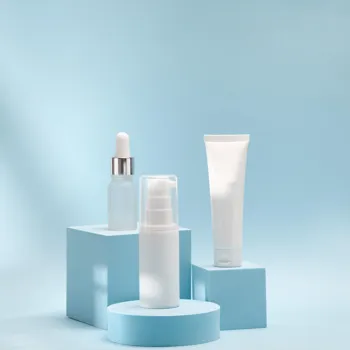
Physical exfoliants include scrubs with tiny beads or grains, which manually buff away dead skin. Chemical exfoliants, on the other hand, use acids like glycolic or salicylic acid to dissolve the bonds between dead skin cells.
For sensitive skin, opt for a gentle physical exfoliant or a chemical exfoliant with a low concentration of acid. Use a gentle circular motion on the skin. Don't overdo it. Over-exfoliating can strip your skin of its natural oils and cause irritation.
Start by exfoliating once or twice a week and then increase the frequency as needed. Follow up with a hydrating moisturizer to keep your skin soft and supple. Also, remember to exfoliate your body as well for a smoother and radiant glow.
An essential ingredient is to opt for scrubs for your face based on sugar or oatmeal.
Exfoliation enhances the absorption of your skincare products. It will allow serums and moisturizers to penetrate deeper into the skin and thereby deliver better results.
After exfoliation the skin will become more sensitive to sunburn. Hence a good sunscreens is a must. People with acne prone skin need to be careful as overuse could worsen the acne. A mild exfoliator is advised to people with serious skin problems.
Overall, exfoliation is an essential step in your spring skincare routine.
Lighten Up Your Moisturizer
The heavy creams that worked wonders in winter might feel too heavy in the warmer months. Switch to a lighter, non-comedogenic moisturizer that won't clog your pores. Gel-based or lotion-based moisturizers are great options for spring.
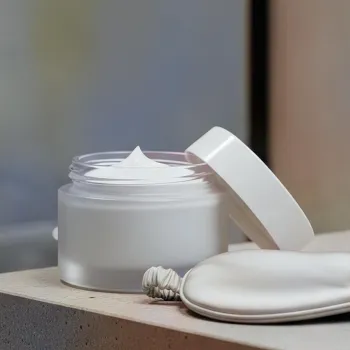
Look for ingredients like hyaluronic acid, which draws moisture from the air to hydrate your skin without feeling greasy. Remember, even oily skin needs hydration! Don't skip the moisturizer just because your skin feels oily.
A very thin moisturizing layer will seal in hydration, especially a gel based one. Spring brings with it humidity, especially near the coastal regions. A light moisturizer will not overwhelm the skin unlike the heavy creams. Also people living in drier conditions should use a good moisturizer.
Moisturizing the skin after a routine helps in getting the glow. A light moisturizer helps in maintaining the skin balance.
Light moisturizers are designed to be easily absorbed by the skin. Hence the skin will feel soft and healthy.
A good moisturizer will act as a barrier and will help in preventing water loss. It also protects the skin from external damage. Light moisturizers are available in various forms. They contain SPF which helps in protecting skin from harmful UV radiations.
A light moisturizing element, preferably gel based can also act as a skin primer before doing make up.
Amp Up Your Sunscreen
Sunscreen is important all year round, but it's especially crucial in spring as the sun's rays become stronger. Choose a broad-spectrum sunscreen with an SPF of 30 or higher that protects against both UVA and UVB rays.
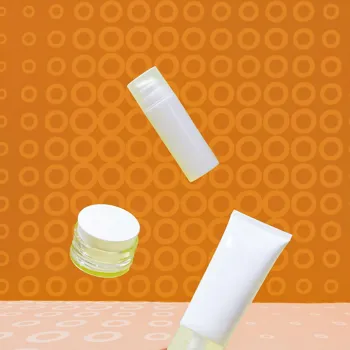
Apply it generously to all exposed skin, including your face, neck, ears, and hands. Don't forget to reapply every two hours, especially if you're swimming or sweating. Even on cloudy days, UV rays can penetrate through the clouds and damage your skin.
So, make sunscreen a non-negotiable part of your daily skincare routine.
It is recommended to apply the sunscreen every few hours. Remember to check the expiry date to make sure its effective. It's best to choose a sunscreen which suits your skin type.
Oily skin types should use a gel based sunscreen. Individuals with dry skin choose a sunscreen with moisturizing agents. Sunscreen helps in fighting against premature skin related problems like dark spots and wrinkles
Sunscreen forms a crucial portion of your skin routine.
A good sunscreen will avoid sunburns, protects the skin from UV radiations. These radiations can cause various skin problems. Hence, it's never a bad idea to put on sunscreen and stay healthy. Always consult your dermatologist to know which is the ideal SPF value when choosing your ideal sunscreen.
Never shy away from reading the product label before choosing your perfect sunscreen.
Incorporate Antioxidants
Antioxidants help to protect your skin from damage caused by free radicals, which are unstable molecules that can contribute to premature aging and other skin problems. Spring is the perfect time to incorporate antioxidants into your skincare routine.
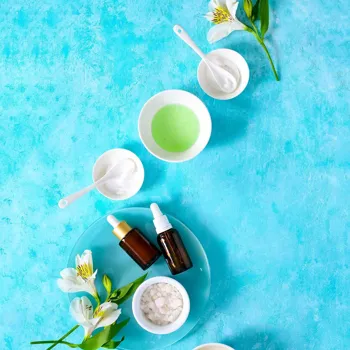
Look for serums or moisturizers that contain ingredients like vitamin C, vitamin E, or green tea extract. These ingredients can help to brighten your skin, reduce inflammation, and protect against sun damage. You can also get antioxidants from your diet by eating plenty of fruits and vegetables.
Antioxidants have anti-inflammatory properties which soothes and calms the skin. Thus, it reduces redness and inflammation. These ingredients have the ability to boost collagen production leaving the skin fresh and healthy.
Antioxidants improves the overall skin texture by increasing elasticity and firmness. A serum containing antioxidants helps in a greater concentration when compared to a face wash or cream.
Antioxidants help in reducing fine lines and wrinkles.
They neutralize the free radicals in the air and reverse the sign of aging on the skin. Antioxidants also protect the skin against environmental damage. Incorporating antioxidants is beneficial for all skin types. Eating a healthy diet, rich in antioxidants can add to the well being of your skin.
Consumption of antioxidant products also help in boosting overall immunity.
Don't Forget Your Lips
Your lips are just as susceptible to sun damage as the rest of your skin. Use a lip balm with SPF to protect them from the sun's rays. Reapply throughout the day, especially after eating or drinking. Chapped lips are not a good look, so keep them hydrated and protected.
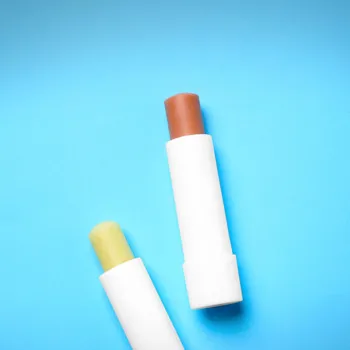
The sensitive lips tend to get dry after prolonged exposure to the sun. A good lip balm with SPF will lock in the moisture. It also helps in healing cracked skin. Lip balms with hydrating agents like shea butter or coconut oil will help in avoiding discoloration.
Having a lip balm with you is a basic thing to add to self care. A lip balm can enhance your look and take it a notch up. It can shield the lips from the sun by acting as a barrier. It also makes your lip look healthy and vibrant. Remember to choose the lipbalm wisely that suits you best.
Stay Hydrated
Drinking plenty of water is essential for overall health, and it also benefits your skin. Water helps to flush out toxins and keep your skin hydrated from the inside out. Aim to drink at least 8 glasses of water a day.
You can also increase your intake of water-rich fruits and vegetables, such as watermelon, cucumber, and spinach. Avoid sugary drinks, as they can actually dehydrate your skin.
Water enhances blood flow to the skin and ensures hydration. It also removes toxins and keeps the skin cells healthy.
Dehydration may cause the skin to dry. Hence, an adequate supply of water is very essential for the health of the skin.
Drinking at least eight glasses of water replenishes the water loss through activities like sweating. Healthy hydration promotes skin elasticity and combats dryness.
Increased hydration ensures a good and healthy skin. Remember water is absolutely essential for a nourished skin.
Consider a Professional Facial
A professional facial can help to deep clean your pores, remove dead skin cells, and hydrate your skin. It's a great way to kickstart your spring skincare routine. Choose a facial that's tailored to your skin type and concerns. Regular facials can help to keep your skin looking its best.
A licensed expert is efficient in analyzing different skin types and they customize treatments for optimal results. A professional is a great help in maintaining a glowing and healthy skin. Its generally a good practice to do a facial once in a while.
A deep cleanse is done followed by exfoliation.
The expert manually extracts blackheads and whiteheads. This leads to healthy and radiant skin. A professional can also advise on home skin care routines. Regular treatment will also help in enhancing the routine.
By following these seven tips, you can refresh your skincare routine and keep your skin looking its best throughout the spring season. Remember to be patient and consistent with your routine, and you'll be rewarded with a healthy and glowing complexion!
AI Generated Content. Glance/InMobi shall have no liability for the content














